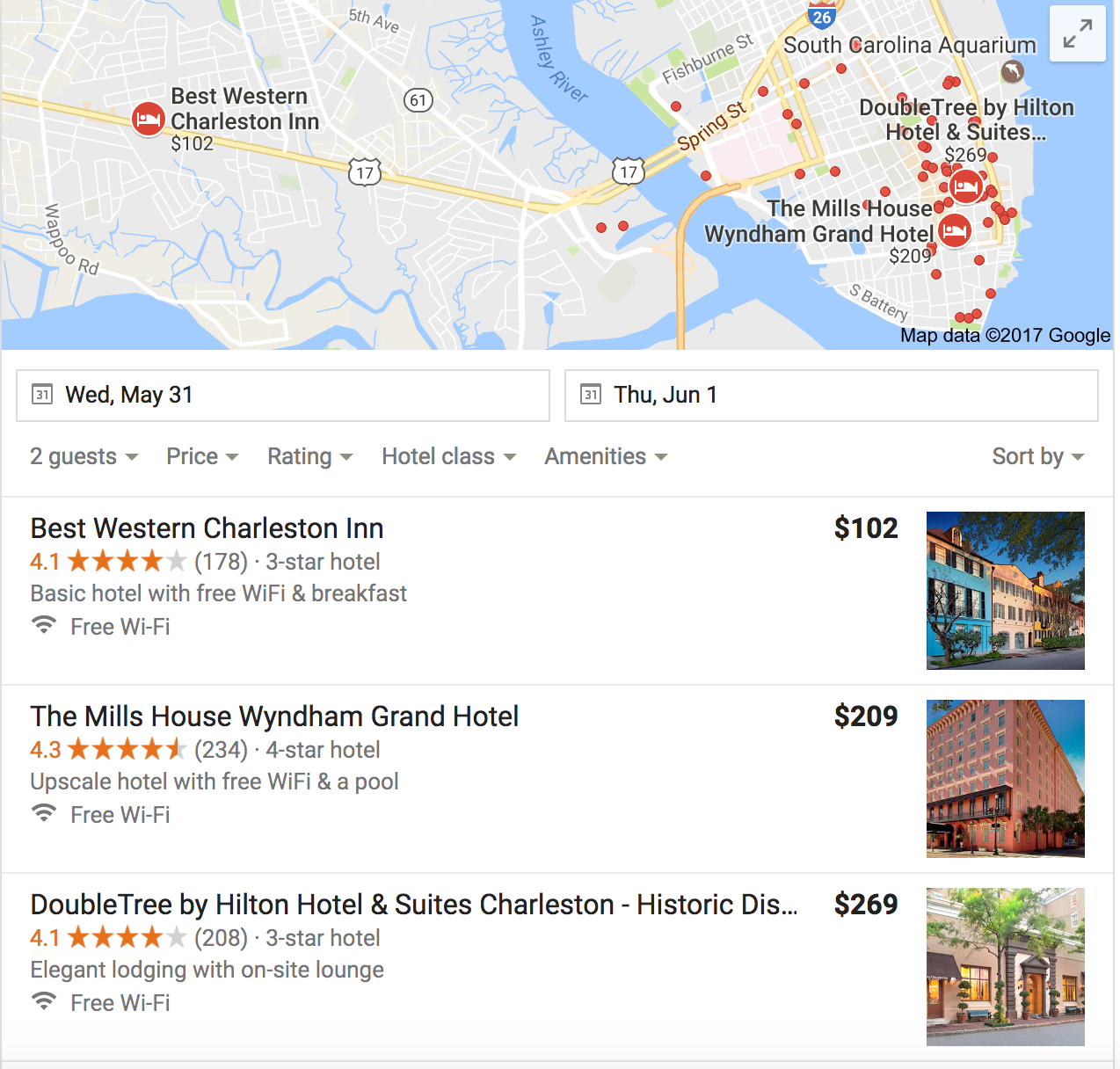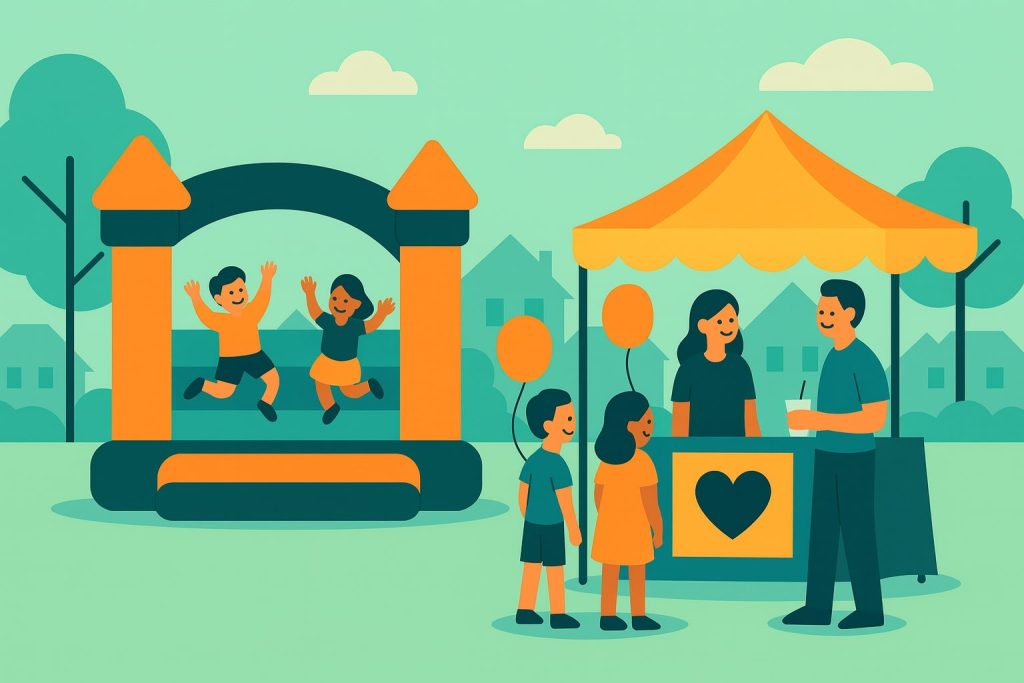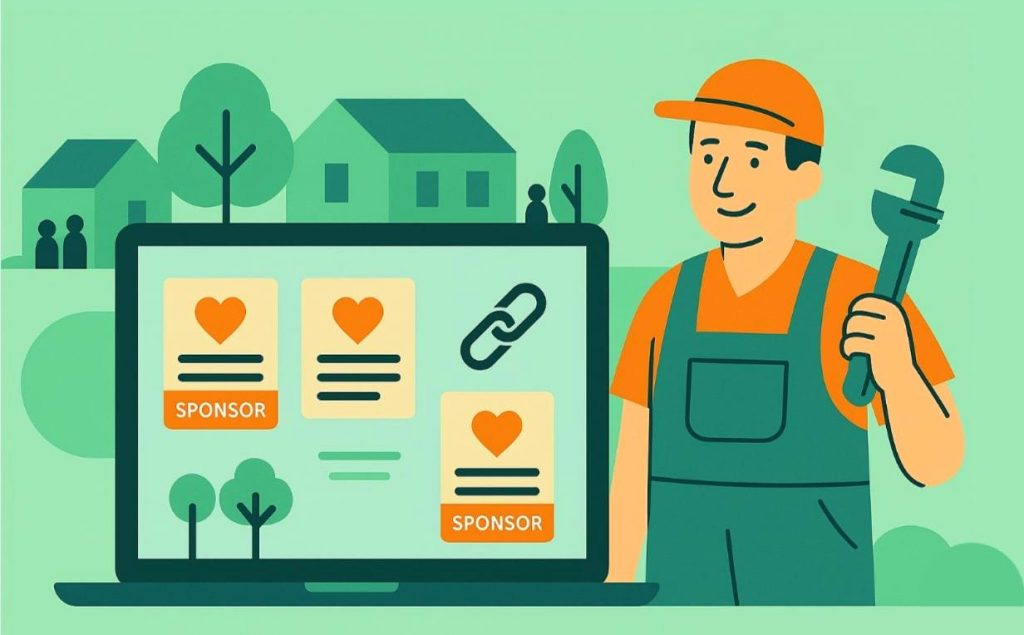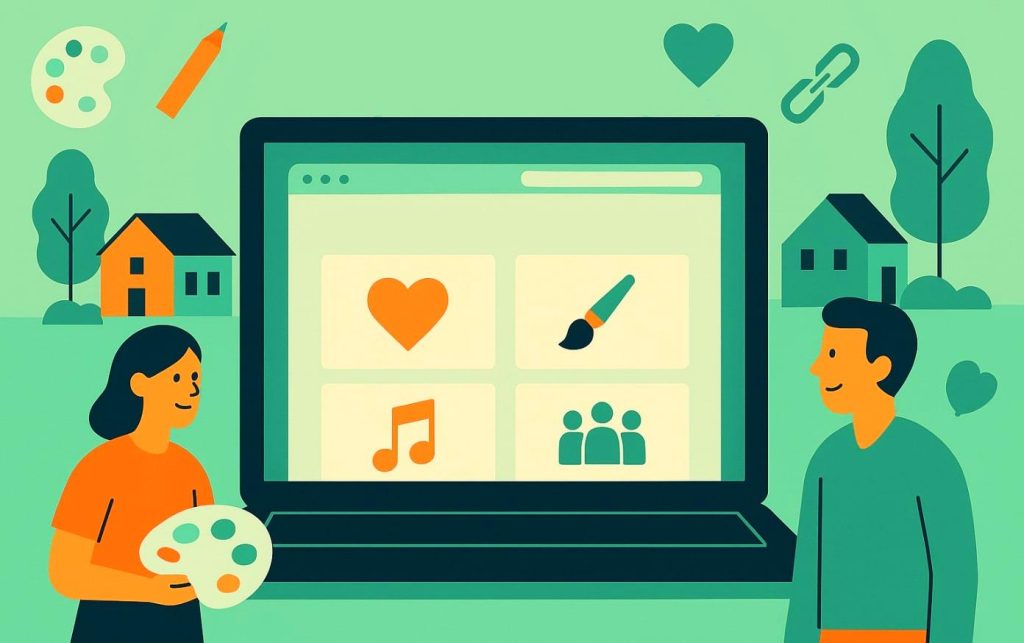Miriam Ellis has been in Local SEO since the early 2000’s. She’s seen the field through quite a few Google algorithm updates, and she now works for Moz as local search expert, in addition to running a digital agency. She’s also a huge advocate for community involvement as a business practice. I’d been meaning to reach out to her for a while, and her recent post on how offline business practices can affect local SEO finally pushed me to ask her if I can pick her brain.
This interview goes hand-in-hand with my podcast featuring Joy Hawkins. Both involve experts in the local space who are passionate about small businesses, and Miriam’s “big picture” view is a great context for understanding the details Joy works to perfect.
And both interviews are a must-read for anyone with a local business.
1. So you’ve been in local SEO for quite a while now – you’re certainly one of the established voices in the industry. But to me, even as someone relatively new to the space, it’s felt like the past couple of years, and the next couple of years, are a big tipping point for local SEO. The technology seems to be moving faster. The practices are becoming more difficult to parse as ‘unique to seo’ – meaning Google’s attempt to make a search engine that reflects the real world is getting closer and closer to fruition. Do you see that trend as well? Or has it always been such a chaotic space?
 You’re absolutely right, Megan, in noticing a tipping point in local SEO. From the early days, I’ve been teaching that our job as consultants is to build the online mirror image of the offline world, and it’s clear that this is Google’s vision, as well. The offline world is people-centric and complex. If our approach is overly-simplistic (for example, we just think about SEO as a stand-alone discipline), then we’re not going to be able to fully reflect or serve the real world.
You’re absolutely right, Megan, in noticing a tipping point in local SEO. From the early days, I’ve been teaching that our job as consultants is to build the online mirror image of the offline world, and it’s clear that this is Google’s vision, as well. The offline world is people-centric and complex. If our approach is overly-simplistic (for example, we just think about SEO as a stand-alone discipline), then we’re not going to be able to fully reflect or serve the real world.
We’ve all been learning as we go, and, as you’ve mentioned, we’re reaching new levels of understanding of why a holistic approach to serving the public is necessary. This has been an on-going process. As for chaos – Google has been the most chaotic constant in this journey, in my opinion. In fact, their rate of developments and changes over the years is one of the main reasons our work as consultants matters. With Google never having done an adequate job of communicating their product to the local business community, who can keep track of all of the re-brands, guideline changes, display changes? Well, we can, and it’s our ability to interpret the shifting local landscape that makes us valuable allies for very busy local business owners.
My best advice to local SEOs is to take their role as consumers very seriously. Parlay every purchase you make into a test, a study. You’ll see that, yes, local SEO plays an important part in helping each of us connect with the local commercial landscape, but it exists within a mix of many signals. Start to notice what all of the on-and-offline factors are that influence your path to purchase (discovery, brand loyalty, accessibility, convenience, customer service, habits, word-of-mouth). There’s magic in what you notice.
2. You wrote in your recent Moz blog post (offline + organic = local) that real-world factors are too intertwined with SERP rank for marketers to continue to ignore them. What are some examples of real-world factors that now influence search?
Does that put SEOs in the strange position of telling clients how to run their business?
In answer to the last: yes, it’s my belief that local SEOs, in particular, have got to envision themselves as consultants in a broader sense than the one we with which we may have started the industry.
A perfect example of this is online reviews. An incoming client tells you he’s not getting enough business, and one of the first things you likely do is look at his reviews on the major platforms. This is your first intimation of how well the business is actually being run in the real world, and if consumer sentiment reflects repeat dissatisfaction with certain aspects of the business (rude service, poor housekeeping, cold food), then no amount of local SEO is going to be able to make up for these neglected issues. The local SEO, as interpreter of the local landscape, has to let the business owner know which problems have to be resolved in the place of business in order to make high online visibility actually convert into transactions and repeat business. What’s the value of ranking in the top spot of a local pack if under-trained staff are going to lose the customer once he walks in the door?
And, speaking of tipping points, I think we’re reaching one right now in terms of reviews. I’ve been a participant in the Local Search Ranking Factors survey since its inception, and over the years, the results of this survey have indicated that the industry hasn’t thought Google very capable of tying positive sentiment to high rankings. In other words, a business with 50 negative Google reviews could outrank one with 5 positive reviews. But, I think a new day is dawning in terms of rankings correlating more closely with consumer ratings. The ability to sort Google’s local results by rating has existed for quite a while, but in recent weeks, we’ve seen Google applying a highly-rated snippet to hotel listings and, also, reports of searches formatted as “best X in city” defaulting to results containing only businesses with 4+ star ratings. I think it’s safe to predict that we are going to start seeing the offline sentiment of consumers impacting local rankings via the medium of online ratings/reviews.
Other offline signals that could start impacting rankings? The tracking of in-store foot traffic and Google’s increasing understanding of busy times of day. Also, I’m very curious about the role offline attributes play when they’re assigned to GMB listings.

3. Given these new local marketing responsibilities – make sure the business delivers quality, ensure that their web experience is pleasing and informative, and encourage real-world local interactions, what does it mean to be an SEO in 2017? Is it even a relevant job title anymore? Or do you think it’s blending with the (very broad) digital marketing field?
As an add-on to this, you wrote a post a few months ago encouraging millennial – or younger members of the workforce – to consider local SEO as a career. For those who do take this path, how do you think the trajectory of their careers will be different from local SEOs who started 10 or 20 years ago?
Job titles and job descriptions will continue to evolve, but marketing, itself, hasn’t changed very much in several hundred years. From the printing press, to television, to the Internet, the end goal of all marketing efforts is a human connection. For any form of marketing (offline or digital), you’ve got to have the data person, the ideas person, the writer, the artist, the spokesperson, the technician, the liaison, the publisher. The better a local SEO understands the holistic picture of consumer-centric service and marketing, the more valuable a consultant he or she will be.
So, for now, call yourself a “local SEO”, but don’t limit your description of yourself to someone who optimizes title tags or manages citations. Mine business owner and consumer experiences (including your own!) for the secret sauce that means the difference between success and failure. Study the history of marketing and the science of consumer behavior. Don’t believe everything you read, but test as much as you can. As long as local businesses operate in your town or city, you’ll have a valuable service to offer.
4. I’ve read in other interviews you’ve participated in that you came to local SEO out of a desire to start a business with your husband and a romantic love for the uniqueness of individual cities. I have a lot of admiration for both of these sentiments. But I’d be interested to hear, from your experience a few years later – do you see some cities’ personalities shifting a bit? Do you think our culture is becoming more centralized, due to the Internet?
For example, many people are getting their news from national online outlets instead of local papers or news stations? Do you see other ways in which the Internet is hurting (or helping) local customs and personalities?
I tend to be sentimental about independently-owned local businesses, but these sentiments are based in repeat experiences of smaller brands offering better customer service than the big ones frequently do. Small business owners have a personal stake in the game that simply can’t be replicated by random employees at most big box stores, and for me, it has been the arrival of the big box stores that I’ve seen have more negative impact on the unique flavor of local towns than the Internet has, in general.
You’re right about the way people get news from national online outlets, Megan, but I’d also say that your question is like a challenge to any local marketing agency that serves the smaller brands. The Internet can be the great leveler. Whether I discover and shop at a major brand outlet like Whole Foods or at the Anderson Family’s Organic Produce Stand in my town is a challenge for local marketers. If we can help the little guy compete on the web, we can promote valuable local flavor even in major cities. Don’t get me wrong – some big brands offer vital services and run wonderful companies, but monopolies aren’t consumer-centric and if quality and variety suffers, the customer isn’t being well-served.
5. I’ve been doing a lot of research into local focused adtech recently – everything from Facebook ads that target people in a certain cities, to mobile ads based on a person’s proximity to a store. Obviously, the technology here is becoming increasingly advanced. As a long-time local search marketer, do you see these entities as possible competition to organic marketing practices?
For the moment, yes, they are competition and I see this increasing, but I think this is another case of needing to master the big picture. In competitive geo-industies, it’s highly likely that you’re going to need to experiment with adtech to see what converts for your business. But consumers are still coming to us through so many channels (offline WOM, organic SERPs, local packs, direct-to-website traffic, PPC, etc.). You’ve got to have it all, so that you’re opening every possible door to your neighbors.
6. Finally, I love to ask each person I interview about the place that they’re “local” to. I believe you live in the SF Bay area – a part of the country that is very near and dear to my heart. But I’d love to hear from you – why did you choose to make the Bay Area home? And what makes this part of the country unique?
If you were working with a business who wanted to capture the attention of people in the SF Bay area – how would you recommend they customize their messaging or outreach efforts?
I’m native to the area and am deeply invested in the sustainable regeneration of California. Like the rest of the U.S., California is Indian Country, meaning that Indigenous leadership in the state basically possesses the blueprint for managing the land, internal commerce, interstate trade, and the problems we’re facing from climate change like drought and runaway wildfires. It’s my belief that the green movement that you’re seeing going so strongly in certain parts of California, including the Bay Area, is reaching towards a more Indigenous-inspired vision of how California is supposed to be managed so that it’s healthy and sustainable for everybody. There’s a lot to learn, and fortunately, tribal leaders have been outstandingly generous in offering to partner with local organizations and state and federal agencies to teach what they’ve always known about living well here.
So, in my view, the greatest opportunity for local businesses and their consultants in a place like the San Francisco Bay Area lies in recognizing this palpable pull towards sustainability. For those interested, I’d start with reading a book called Tending The Wild, and then move on to study the waves of subsequent cultures to the area, including the incredibly important Mexican and Latino Californians who now comprise about half of the state’s population. Then I’d look at how recent presidential candidate Bernie Sanders was able to fill massive stadiums up and down the state beyond capacity at 24 hours’ notice and I’d realize that the desire for green solutions is phenomenal in this part of the country.
So, my advice to businesses would be to green their business models, and for marketers, to help their clients brainstorm and promote green practices, whether that’s green housekeeping at hotels, organic shopping and dining, the use of recycled materials in building and packaging, solar powering businesses, or the use of non-toxic alternatives in manufacture. And always see the human connection you’re trying to establish at the end of the road – local businesses have a tremendous opportunity to express genuine care for their neighbors’ needs, and to make every community a good place to be. Build meaningful relationships with your own neighbors, both offline and digitally, and your local business is off to a sustainable start.



